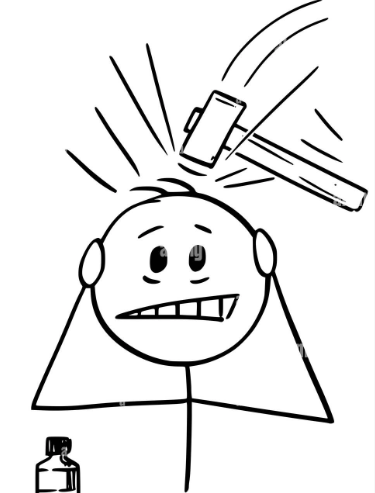- (239) 427-4697
- 10661 Airport Pulling Road N #10, Naples FL 34109
Finding Relief: Understanding and Treating Tension Headaches
- Home
- Finding Relief: Understanding and Treating Tension Headaches
Finding Relief: Understanding and Treating Tension Headaches

Tension headaches are a common ailment experienced by many, often characterized by a dull, persistent pain that wraps around the head. These headaches can be disruptive, impacting daily activities and diminishing overall well-being. Understanding what tension headaches are and exploring effective treatment strategies can significantly improve one’s quality of life.
What Are Tension Headaches?
Tension headaches, also known as stress headaches, are the most prevalent type of headache. They typically result from muscle tension in the head and neck regions. The causes are diverse, ranging from stress and poor posture to anxiety and lack of sleep.
Common symptoms include:
- Aching Pain: The pain is often described as a constant pressure or tightness on both sides of the head.
- Duration: Tension headaches can last from minutes to days, with chronic tension headaches occurring for 15 or more days a month.
- Mild to Moderate Intensity: The pain is usually not severe enough to hinder daily activities, but it can be persistent and uncomfortable.
Treating Tension Headaches:
1. Relaxation Techniques:
- Engage in deep breathing exercises, meditation, or yoga to alleviate stress and promote relaxation.
- Regular breaks and stretching throughout the day can ease muscle tension.
2. Hydration and Nutrition:
- Dehydration can contribute to headaches, so ensure you stay well-hydrated.
- Maintain a balanced diet and avoid skipping meals to stabilize blood sugar levels.
3. Posture Awareness:
- Be mindful of your posture, especially if you spend long hours at a desk. Ergonomic adjustments can make a significant difference.
4. Regular Exercise:
- Engage in regular physical activity to reduce muscle tension and promote overall well-being.
5. Hot or Cold Compress:
- Apply a hot or cold compress to the affected area for 15-20 minutes to help relax muscles and reduce pain.
6. Professional Massage or Manual Therapy:
- Seek the expertise of a licensed massage therapist or consider manual therapy like Osteopathic Manual Therapy or Neuromuscular Therapy to target muscle tension.
7. Adequate Sleep:
- Ensure you get enough quality sleep. Establish a consistent sleep schedule and create a relaxing bedtime routine.
While tension headaches are often manageable with self-care strategies, it’s crucial to consult with a healthcare professional if headaches become chronic, severe, or if their frequency increases. Identifying and addressing the underlying causes is key to finding effective and lasting relief.